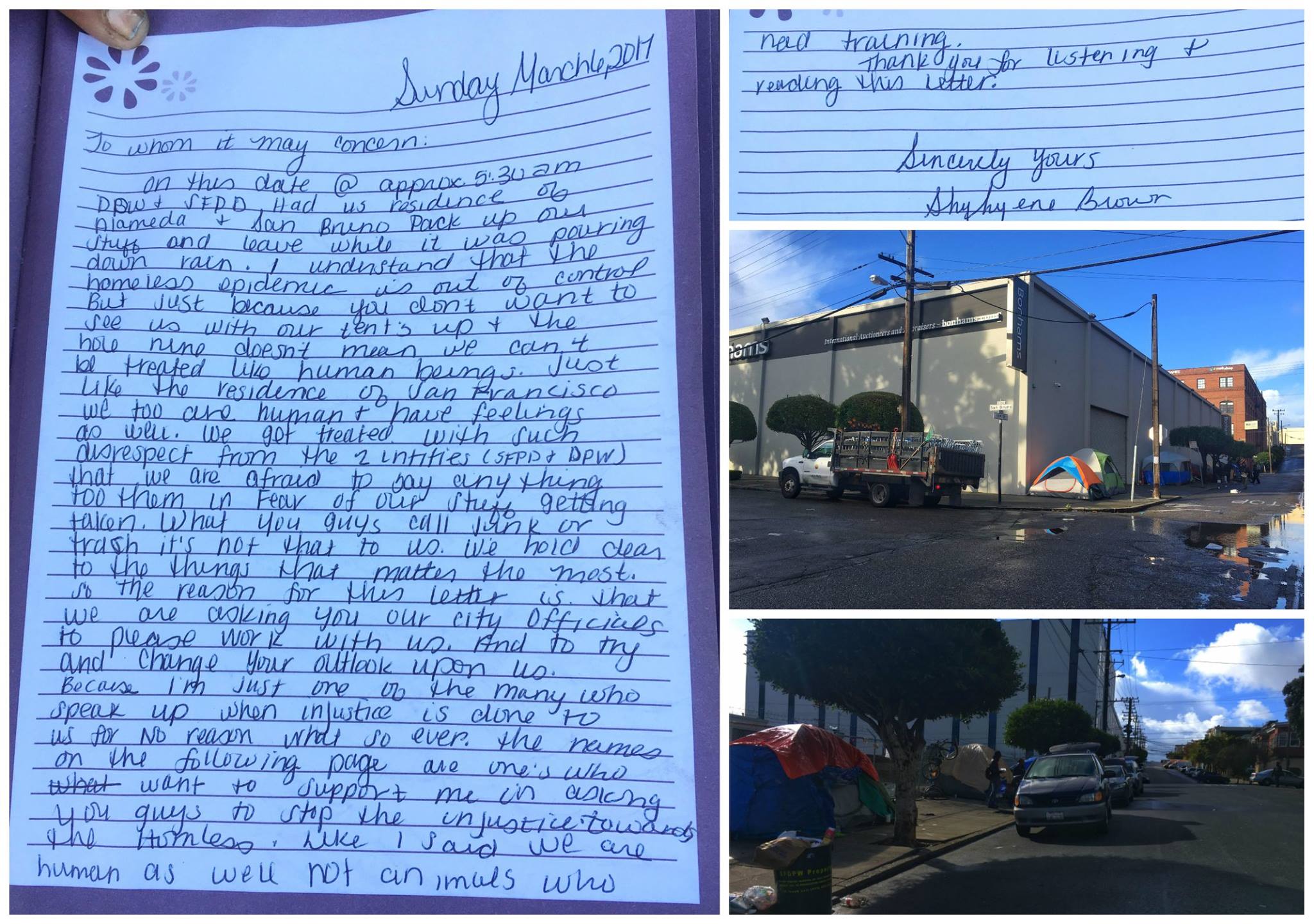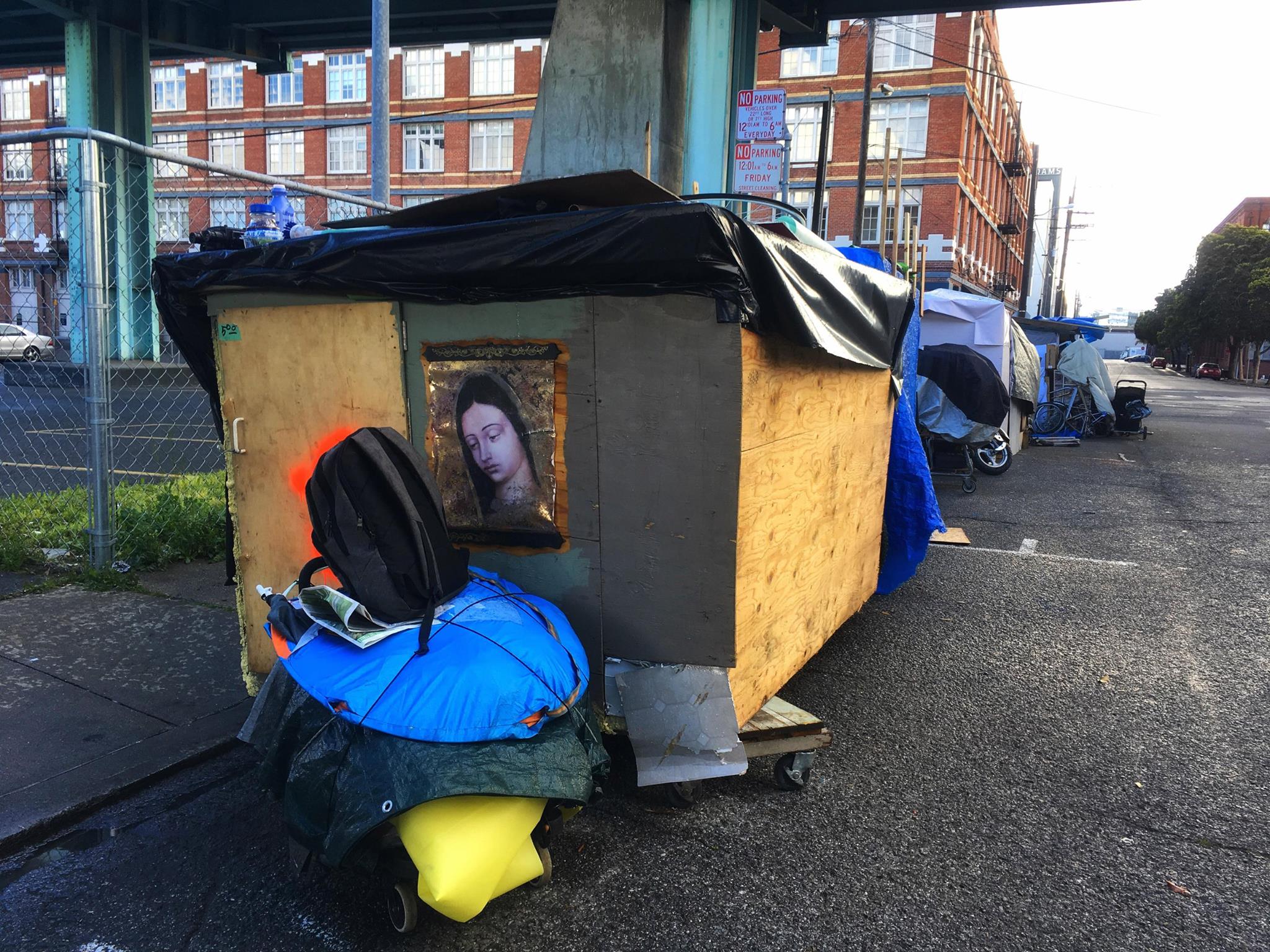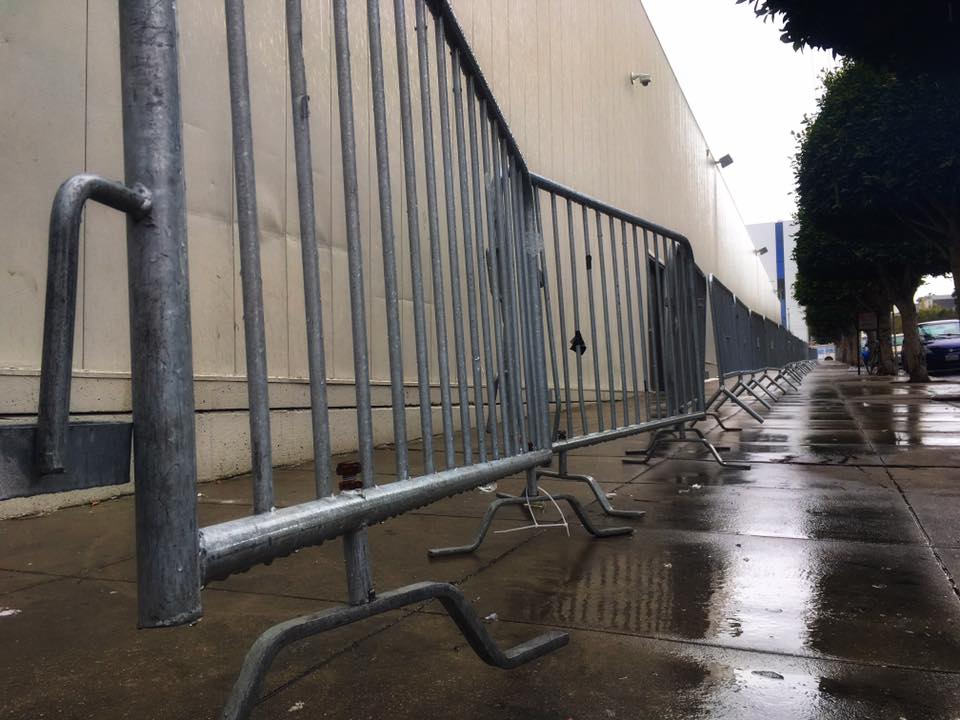
Homeless encampments continue to be displaced by the San Francisco Police Department, the Department of Public Works, private security and others. Encampment residents are told to move along, but have nowhere else to go, with an adult shelter waiting list consistently over 1,000 people long.
One woman living in an encampment has something to say about it. Shyenene “Shy” Brown, whose encampment on San Bruno Avenue was swept in early March, left a powerful letter to those who swept her encampment in the pouring rain:
To Whom it May Concern,
On this date at approximately 5:30 a.m. DPW and SFPD had us residents of Alameda and San Bruno, pack up our stuff and leave while it was pouring down rain.
I understand that the homeless epidemic is out of control, but just because you don’t want to see us with our tents up and the whole nine, doesn’t mean we can’t be treated like human beings. Just like the residents of San Francisco, we too are human and have feelings as well.
We got treated with such disrespect from the 2 entities [SFPD and Public Works] that we are afraid to say anything to them in fear of our stuff getting taken. What you guys call junk or trash is not that to us. We hold dear to the things that matter most. So the reason for this letter is that we are asking you, our city officials, to please work with us. And to try and change your outlook upon us. Because I’m just one of the many who speak up when injustice is done to us for no reason whatsoever.
The names on the following page are one’s who want to support me in asking you guys to stop the injustice towards the homeless.
Like I said, we are human as well, not animals who need training. Thank you for listening and reading this letter.
Sincerely yours,
Shyenene Brown

During the encampment sweep of more than thirty tents, displacing over thirty people, Shy’s husband was arrested by police on a warrant. Although she explained that the court date was set for the following day, they still took him away. That left her to move all of their belongings by herself in the rain. It also left her much more vulnerable and unprotected as a woman on the streets.
“I can’t do this by myself. It’s ten times harder to be a woman than a man on the streets,” Shy says.
The constant displacement—many during early morning hours and harsh weather conditions—from one area of the city to another is extremely traumatic for encampment residents.
“I’m really physically, emotionally stressed out,” says Shy. “The disrespect from DPW, the police, everyone that has to deal with them. I’m just tired. I’m trying to get my point across. In their minds, I’m nobody.”
During encampment sweeps, homeless residents often have their personal belongings taken away, including medicine, items for health care needs, and sentimental possessions. Currently, the Lawyer’s Committee for Civil Rights is filing a lawsuit against CalTrans for destroying and confiscating people’s personal belongings.
“Even though DPW wants the streets clean, they take our personal belongings and throwing them away—you’re taking our personal belongings that we’ve had for years. And you don’t have nothing to give us back,” says Shy’s brother, who is also an encampment resident.
What he says rings true for many. While the City tried to improve its encampment protocol with an Encampment Resolution Team led by social worker Jason Albertson, there is still no housing that is being offered.
This cycle of moving people from place to place is best exemplified by one of the more visible sweeps that occurred earlier this year with the Box City encampment. While most of the residents were offered shelter at the Navigation Center, many of those were only offered 30 days there, some with an extension.
Human Rights Organizer Kelley Cutler at the Coalition on Homelessness chatted with one of the former Box City residents during her street outreach. The resident had entered the Navigation Center, but then was discharged—and forced to live on the streets again. She was placed onto another waitlist for shelter for a 90-day bed, still with no offer of housing.
The City has also begun to put up metal barricades to discourage people from sleeping or pitching a tent in the same area. According to Cutler, the barricades have been increasingly appearing around the city and are the opposite of a solution to homelessness.
These barricades also make it difficult for people to use the sidewalks, especially for people with disabilities. Resources should be going into housing and social services, rather than blocking off public spaces.
If you see an encampment sweep, document it. Take videos, photos, or notes and notify the Coalition on Homelessness’s human rights organizers at humanrights@cohsf.org.
Attend our Encampment Sweeps Watch Training on 3/29 at 5:30 – 6:30pm. Event details here.

